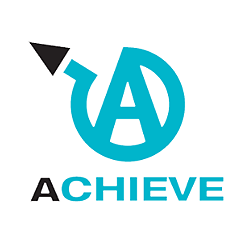
New Guidelines assist the Provision of Alternative Arrangements for Tertiary Students with Disability/Impairment
Status
Completed: 30 March 2015
Project Details
A project completed in 2015, undertaken by ACHIEVE (The National Post-Secondary Education Disability Network Incorporated), to survey and compare policy and practice of alternative assessment arrangements, to accommodate diverse needs for extra time in examinations and tests for students with impairments, in tertiary education institutions in New Zealand.
Aims:
The project aims were to:
- clarify and analyse the different policies applied across New Zealand, and ultimately produce a model to standardise practice in relation to alternative assessment arrangements
- revisit and update the survey conducted in June 2013 by ACHIEVE of 13 tertiary institutions on an extra time allowance for exams and tests within NZ tertiary institutions
- augment the survey findings by requesting information about policy in place and specific variations of provision and practice
- compare New Zealand arrangements nationwide and to contrast them with those of selected institutions overseas.
Methodology:
A mixed methods approach was utilised, involving:
- a literature review
- a review of existing policies across 29 tertiary education providers
- an online survey sent out to Disability Support Managers within those 29 institutions.
Team

Rachel ‘Aluesi
Project Leader
ACHIEVE
Marg Dobson
ACHIEVE
Melissa Lethaby
ACHIEVEMartha G. Bell
Independent researcherStatus
Funding
$6,756.00 (excl GST)
Key Findings
The key findings from the project were:
- The findings illustrate how alternative assessment arrangements for accessing, allocating and evaluating extra time supports are provided in the 28 TEIs that set examinations as a mode of assessing student achievement of learning outcomes. The only residential, Māori-medium, iwi-wānanga in New Zealand does not set examinations as a mode of assessment. The findings are compared in order to present an overview of current practice.
- Of the 28 institutions surveyed, all offer extra time supports either on a case-by-case basis (18%) or by allocating a standard with flexibility on an individual basis (82%). The most common standard is 10 minutes per hour of examination or longer test, with 15 minutes the next most common. The provision of a support for pacing in assessment shows a strong commitment to reducing barriers encountered by tertiary students with impairments.
- Four international exemplars of policy and/or guidelines on extra time supports that use standard amounts of extra time allocation offer the same standard amounts of extra time as the majority of New Zealand TEIs. They offer 10 minutes and 15 minutes per hour of examination or test.
- Implementation of a standard in alternative examination arrangements rests on the sustainable capacity of the TEIs throughout the sector to mobilise knowledge of teaching, learning and assessment accommodation without focusing on students with impairments themselves. It is up tertiary institutions to engage students with a range of impairments at the levels of policy and governance while institutions expand the capacity to embed disability access, equity and inclusion throughout their educational environments.
Key Recommendations
The key recommendations from the project were:
Engaging with wānanga | That further research engages with Māori support services staff in wānanga by using collaborative hui so that current provision is fully illustrated.
Setting a national standard | Setting a national standard of a time allowance of 10 minutes per hour of examination or test developed by the Disabled Advisors Working Network (DAWN) in Ireland involving their 21 member institutions.
A research report prepared by Martha Bell.
(PDF, 1.35MB, 78-pages).
- 28 March 2015
A resource prepared by ACHIEVE’s Subgroup on Alternative Arrangements.
(PDF, 663 KB, 48-pages).
- 3 June 2016
Download the poster.
(PDF, 2.54 MB, 1-page).
- 3 June 2016